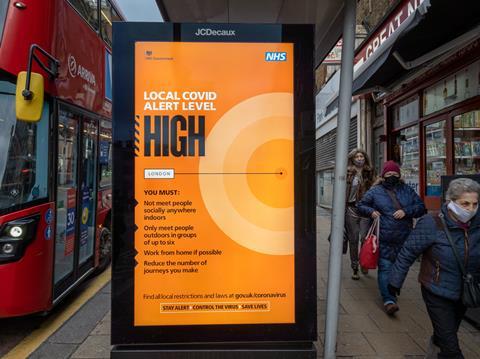Construction top ranking industry for firms in serious trouble
Construction and real estate firms account for nearly 30% of companies in ŌĆ£critical financial distressŌĆØ as the slowdown in the housing market continues to bite.
Analysis by insolvency practitioners Begbies Traynor showed the sector experienced a 46% quarter-on-quarter increase in the number of businesses on the verge of failure.

Nearly 6,000 construction companies are in critical financial distress, making it the top ranking sector, while nearly 5,000 more troubled firms were identified in real estate and property services.
Julie Palmer, partner at Begbies Traynor, said: ŌĆ£The construction industry, which has long been a bellwether for the health of the economy, looks particularly vulnerable with over 70,000 firms now in significant financial distress and circa 6,000 in much more serious critical financial distress ŌĆō often a precursor to formal insolvency.
ŌĆ£These businesses must now struggle through a period of inflation-eroded margins, weak demand and a looming recession. It is likely to be an insurmountable task for many.
ŌĆ£This latest data highlights how the debt storm, which has been brewing for years, but had been held off by several measures to provide breathing space for companies, may very well break. Something that will send shockwaves through the whole economy.ŌĆØ
Begbies Traynor also reported an acceleration in the number of companies experiencing ŌĆ£significant financial distressŌĆØ, with roughly 478,000 now affected ŌĆō up 8.7% on the second quarter.
Construction and support services again accounted for the lionŌĆÖs share ŌĆō nearly 50% ŌĆō of this rise.
It comes alongside a gloomy batch of statistics published today by Insolvency Service.
Roughly 6,200 companies went bust in the third quarter, which is 10% higher than in the same period last year.
Mark Ford, partner at professional services firm Evelyn Partners, said demand for products and services was not keeping pace with inflation in the price of inputs and wages.
ŌĆ£As wage rises seem to have further to go, we can expect the costs environment for some firms to become more challenging, particularly but not exclusively in construction, retail, leisure and healthcare sectors,ŌĆØ he said.
ŌĆ£All this comes amid some persisting effects from the aftermath of the pandemic. Many businesses have emerged post-covid significantly more vulnerable, having eaten through their cash reserves just to survive and are often saddled with increased liabilities in the form of covid loans or landlord or HMRC arrears.
ŌĆ£Government support has ended, these liabilities must now be repaid, and weaker firms that had been propped up by covid support or HMRC benevolence are now expiring at elevated levels as those lifelines recede into the past.ŌĆØ



























No comments yet